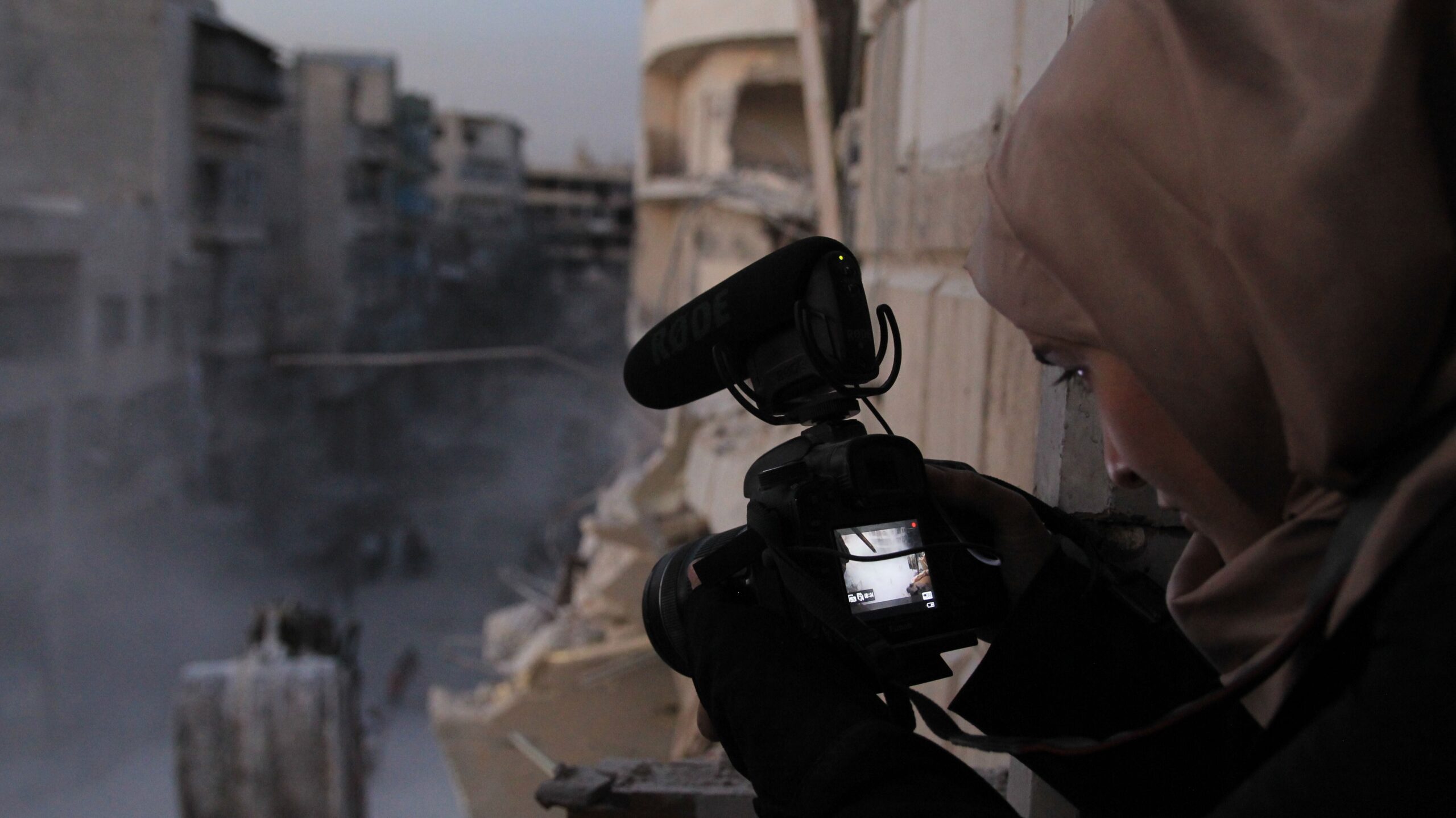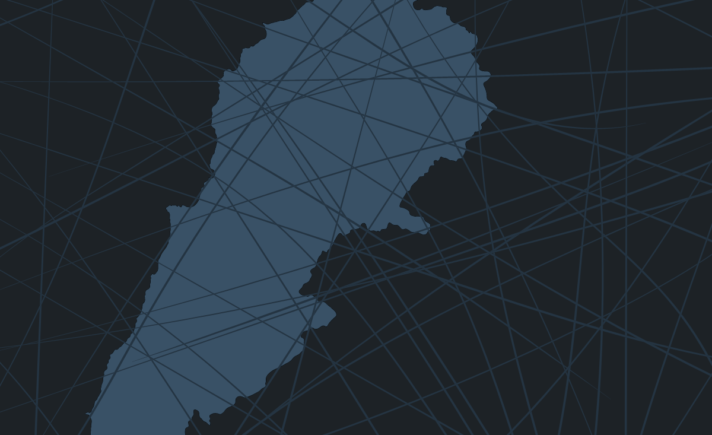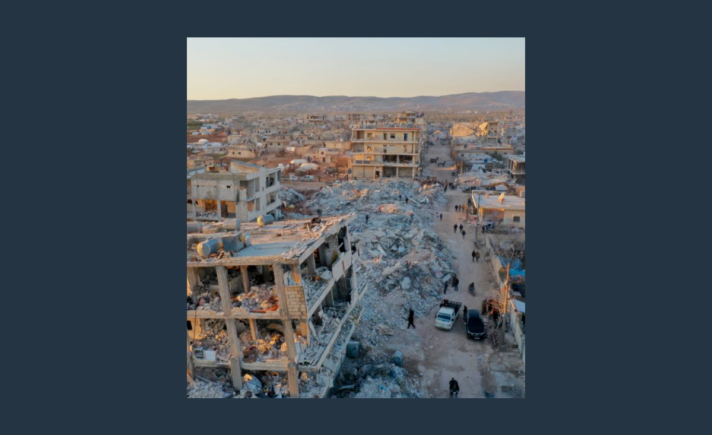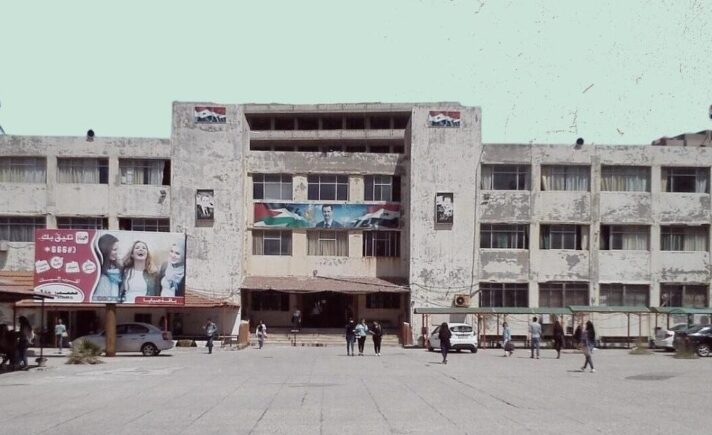Too often, experiences of war are narrated through the eyes of men, while women remain in the background as supporting characters. But For Sama, a feature-documentary by Waad al-Kateab and Edward Watts, offers an intimate perspective of motherhood under siege in Aleppo through the eyes of a young mother.
youtube://v/vsvBqtg2RM0
The film, which has already won awards, was met with three standing ovations last week at Cannes, where it will be up for several further awards in the coming days, including the Caméra d’Or.
“It was really amazing, we didn’t expect such a warm welcoming. People were really touched and moved. The Q&A lasted twenty minutes, which is unusual for Cannes,” al-Kateab told Al-Jumhuriya.
Generally, films shown at Cannes are expected to make their world premiere at the festival to maintain its exclusivity. An exception, however, was made for For Sama, Watts explained, which made its world premiere at the SXSW film and music festival earlier this year.
“They still chose to screen us, breaking their traditions to show their support for the film,” the co-director said.
For Sama was born out of five years’ worth of al-Kateab’s personal footage. In ninety-five minutes, it documents her evolution from a marketing student at Aleppo University recording student protests in 2012, into a journalist, wife, and mother by the time she exits Syria in the final days of the 2016 siege of Aleppo.
Al-Kateab narrates overhead throughout, explaining to her daughter Sama why she and Sama’s father Hamza chose to stay in Aleppo until the very last possible minute, raising then-infant Sama under such conditions.
Hamza, a medical student at the beginning of the film, goes through a rapid transition himself. Finding himself one of the last remaining doctors in east Aleppo, he becomes a trauma surgeon running the makeshift al-Quds hospital.
“I need you to understand why your father and I made the choices we did, what we were fighting for,” al-Kateab says at the beginning of the film.
Her battle reconciling newfound motherhood with her devotion to the Aleppan community is one of the profound storylines of For Sama.
In the film’s turning point, Waad, Hamza, and Sama are en route to visit Waad’s ailing grandfather in Turkey. When outside Aleppo, they hear that roads back to the city would soon be under siege. In a decisive moment, the parents decide to skip Turkey and make the dangerous journey back home past regime-held areas to face an uncertain future.
This moment lies at one of the film’s cruxes: logic is redefined when inexplicable decisions are made in impossible moments. In a voiceover, we hear Waad tell Sama she is unsure how to explain this choice even today.
“It was complicated. I felt the heaviness bearing responsibility to show people outside what was happening in Aleppo,” al-Kateab told Al-Jumhuriya. “There was no one there, just Syrian people trying to survive and we knew exactly what they were going through.”
“For Hamza,” she added, “this was even more complicated, being one of the only doctors. There didn’t seem to be a choice, even though we knew it was best for Sama to leave Syria.”
Afreen, a close friend of the couple’s, also experiences these clashing responsibilities of motherhood against love for one’s community. While raising multiple children throughout the war, Afreen cries equally for their safety and future, as she does for Aleppo.
With its gripping human-narrative, the film is accessible to crowds unfamiliar with the politics of the Syrian war. For Sama demonstrates that knowledge of the war’s background is not always necessary to empathize with civilians struggling to survive.
In one scene, doctors rush to perform an emergency Caesarean section on a pregnant woman hit by an airstrike. In the first thirty seconds of chaos, it seems as if death is imminent when a lifeless blue body emerges out of another.
Yet, twenty seconds after doctors hold the baby by its feet, slapping the body almost violently, a cough suddenly trickles into a cry as viewers watch the infant’s skin turn pink—a miracle.
Waad and Hamza survive through countless such miracles as well as defeats; an airstrike on Hamza’s hopital; and the surprise announcement of a second child, before they’re ultimately pushed out of east Aleppo when the front-lines close in October 2016.
Only months after taking refuge in Turkey, al-Kateab is connected with Watts, an Emmy award-winning and BAFTA-nominated filmmaker. Quickly, the pair begin reviewing years of material, forcing the former to reflect on the story she wished to tell.
“After watching some of the old videos, I would call my friends and other mothers there to get their opinion and talk about certain moments. I was happy that there were many times after I called them that they would say, ‘Yes, that is exactly what I was going through,’” she recalled.
The idea to shape the film as a letter for Sama, however, did not emerge until later, the directors said.
“It wasn’t until two thirds into the process that the idea, ‘For Sama’, appeared,” Watts told Al-Jumhuriya.
“But in all of Waad’s footage, it felt that it was always supposed to be for Sama. So much of the footage included Waad engaging with Sama, talking to Sama. She is present in so much of these interesting scenes that the footage itself kind of told us, ‘This is how the film should be’.”





